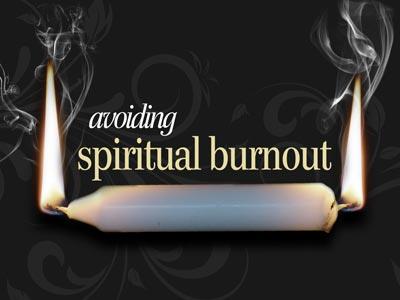-
Dealing With Loss And Grief
Contributed by Lindy Axon on Nov 28, 2017 (message contributor)
Summary: How does a Christian deal with grief and loss?
Every Christian deals with loss and grief at some time during their life. It might come in the form of the death of a loved one, the loss of a financial position, the loss of good health or the shattering of dreams. When this happens, we naturally ask, "Why?" and along with the original loss, we are sometimes tempted to lose our faith in God’s goodness. We enter a period of grief.
How should we as Christians deal with this grief? Is it wrong to grieve? Has God forsaken us?
The first thing the Christian faced with a loss should understand is, that it is "okay" to grieve. Jesus said, "Blessed are they that mourn, for they shall be comforted." (Mat. 5) The word "mourn" comes from a Greek word that means "to lament or bemoan oneself". Jesus said that we who bemoan ourselves are to be envied - blessed. Why is that? Because those who mourn will be comforted. In today’s English, the word "comfort" is almost synonymous with "sympathize." Although Jesus does sympathize with us (the scriptures describes Him as a "Man of Sorrows, well-acquainted with grief and able to sympathize with our weaknesses"), sympathy is not what is meant here. Perhaps you can better grasp the meaning of the Greek word used here (parakaleo) if you understand what comfort meant in Old English. It originally came from two words: come + fortify. God is saying here that He has more to offer us than a sympathetic ear and a pat on the head. He wants to come and fortify us or infuse us with his power. We are not helpless in our grief. He is here to give us the strength to go on and to live successful lives! In fact, He wants to change our losses into gains.
Let’s go to the book of II Samuel, chapter l2, verses 15 through 24, where we will find a Biblical pattern for the grief process in a story from the life of David. You may recall that David committed adultery with Bathsheba, she became pregnant with his child and he had her husband killed. They then married but their child died soon after birth. (Now understand - the fact that sin was committed and punished in this story is irrelevant for our purposes. We just want to lift out the part about David’s grief and use it as a pattern.) Here is what the scriptures say.
Then the Lord struck the child that Uriah’s widow bore to David so that he was very sick. David therefore inquired of God for the child; and David fasted and went and lay all night on the ground. And the elders of his household stood beside him, in order to hold him up from the ground, for he was unwilling and would not eat food with them. Then it happened that on the seventh day that the child died ...But when David saw that his servants were whispering together, David perceived that the child was dead; so David said to his servants, "Is the child dead?" And they said, "He is dead." So David arose from the ground, washed, anointed himself, and changed his clothes; and he came into the house of the Lord and worshiped. Then he came to his own house, and when he requested, they set food before him and he ate. Then his servant said to him, "What is this thing you have done? While the child was alive, you fasted and wept; but when the child died, you arose and ate food." And he said, "While the child was still alive, I fasted and wept; for I said, ’’Who knows, the Lord may be gracious to me, that the child may live. But now he has died; why should I fast? Can I bring him back again? I shall go to him, but he will not return to me.’" Then David comforted his wife Bathsheba, and went in to her and lay with her; and she gave birth to a son, and he named him Solomon. (NASB)
First, we see that David got down on the ground, fasted and prayed. That’s what we should do as well, when we are faced with new pain, disability or loss. We should humble ourselves, fast and pray. We should seek the Lord and ask Him to restore us. This should, in fact, be the very first thing we do when faced with loss. It may be that God will direct you to take an action that will bring about improvement. Others in the church should also lift us up and support us as we pray. The fervent prayer of a righteous man availeth much. There comes a point, however, at which if He does not restore the situation, we must go on.

 Sermon Central
Sermon Central



